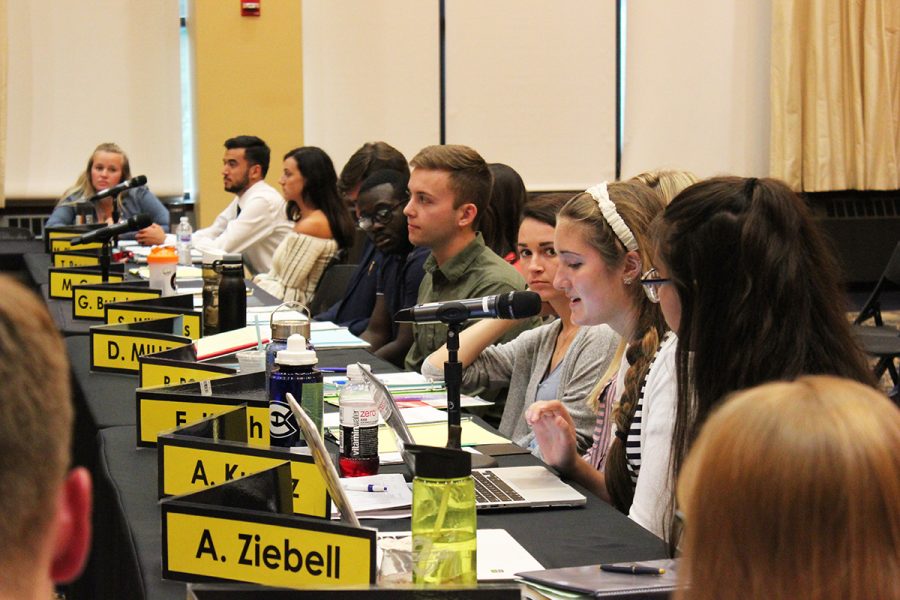Student Senate in favor of removing and updating campus emergency phones
The outdated technology was installed in 1995
More stories from Rachyl Houterman
Photo by Kar Wei Cheng
A resolution in support of reorganizing and updating blue light emergency phones was passed 16-1-6.
Student Senate passed a resolution Monday in support of reorganizing and updating blue light emergency phones that were first installed in 1995 on campus.
The resolution is a response to outdated and malfunctioning emergency phones that require monthly fixes from the Learning and Technology Services (LTS). Though the plan is not yet solidified, it calls for removing 14 of the 20 emergency phones on campus and enhancing the security on the remaining phones, Chief of Staff Hillary Smith said.
“It’s an update of the phones to make them useful and significant,” Smith said. “This resolution is kind of a bare-bones type of thing, so we can keep the project moving forward and make sure the students are on board, have their questions answered and are part of the process.”
The emergency phones are located on both upper and lower campus. The remaining phones would be located at or near Bollinger fields, Governor’s Hall, McPhee Center, Putnam trail, the McIntyre library, Haas Fine Arts Center and the southern end of the footbridge.
These phones would be updated with cameras, new wall mounts and/or call station components.
According to the resolution, there have been 175 activations at the emergency phones’ 20 different locations in the last five years, but only three of those were considered legitimate emergencies. In 140 of the incidents, police “were unable to locate any type of emergency or anyone in need of emergency assistance.”
In addition, 14 of the 20 phones have failed to activate since January 2015. Other maintenance issues encountered with these phones include an inability to hear the dispatcher or caller, a malfunction of the keyboard and strobe lighting or phone activation failure.
Smith said that LTS maintenances the phones and performs monthly fixes for about 15 to 20 hours per month. Additionally, Smith said that LTS estimates about 25 percent of the phones do not work at any given time.
“These are not decisions that have been made lightly,” Smith said. “They are decisions that have been made with the safety of students in mind.”
Some senators expressed concern that there were not enough details in the resolution for them to confidently support it.
Senator Matt Conte expressed his concern for lack of detail in the resolution regarding the elimination of specific emergency phones.
“What if someone does need help and there’s a phone that’s taken out?” Conte said. “That’s definitely something that needs to be considered. We should definitely have a final solution before we make a resolution or statement on it.”
However, Smith said there aren’t many details because it’s still a fluid project that is in motion. Smith acknowledged that it can be an unnerving thought to remove emergency phones, but in the digital age a majority of people have cellphones from which to call 911.
The resolution passed 16-1-6.
Other news:
- The Student Office of Sustainability introduced a bill to amend its bylaws. The bill will be voted on next week.
- The University Activities Commission introduced a bill to amend its bylaws. The bill will be voted on next week.
- The Academic Affairs Commission introduced a bill to amend the Student Senate bylaws. The bill will be voted on next week.
- The Campus Affairs director introduced a bill to amend the Student Senate bylaws. The bill will be voted on next week.

